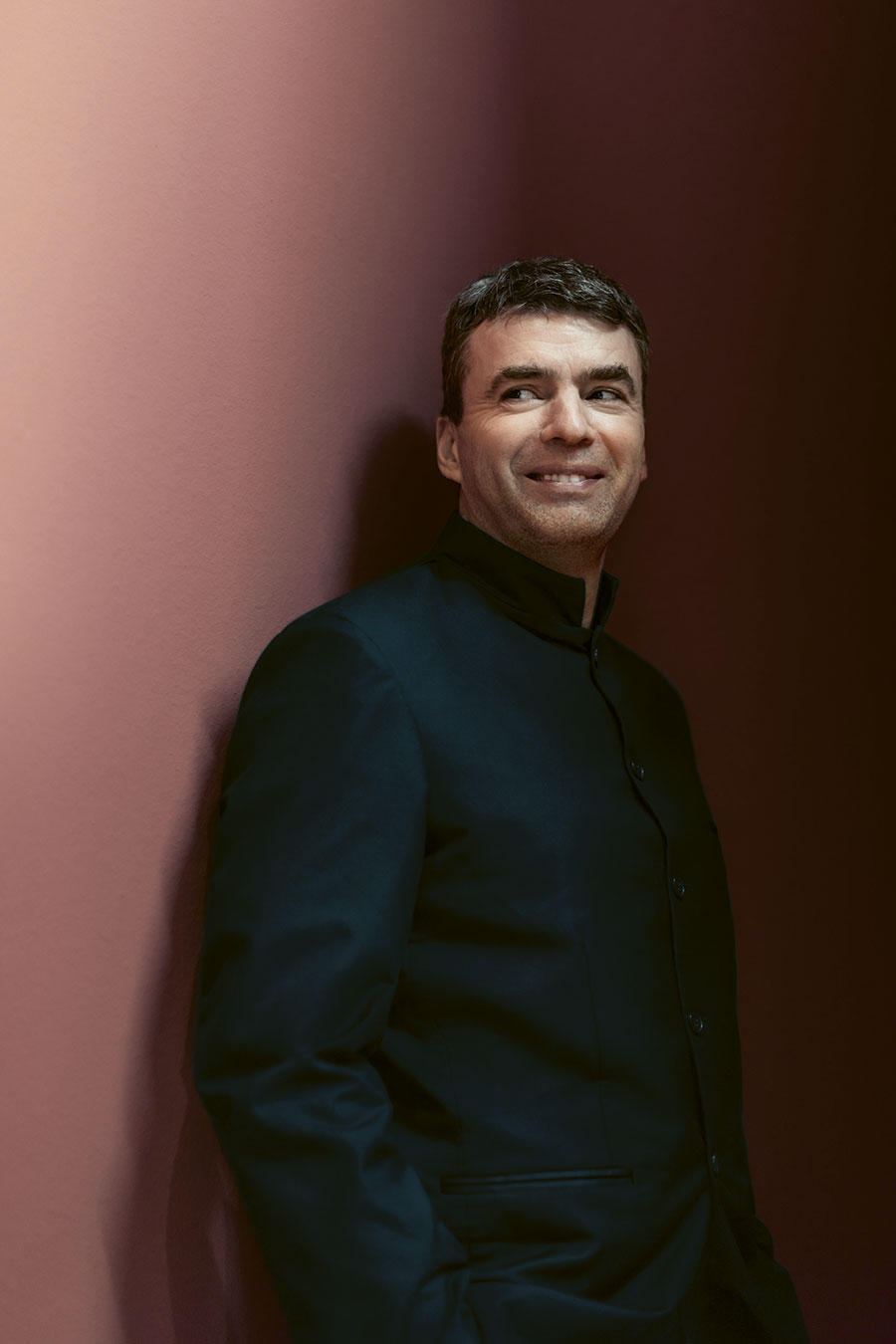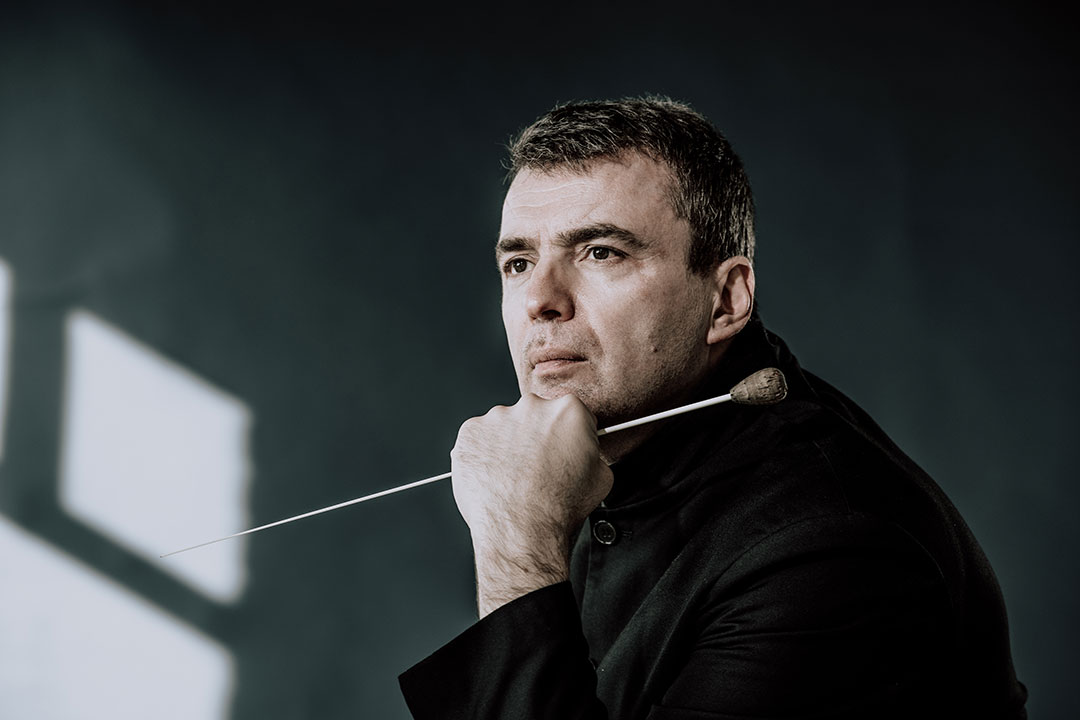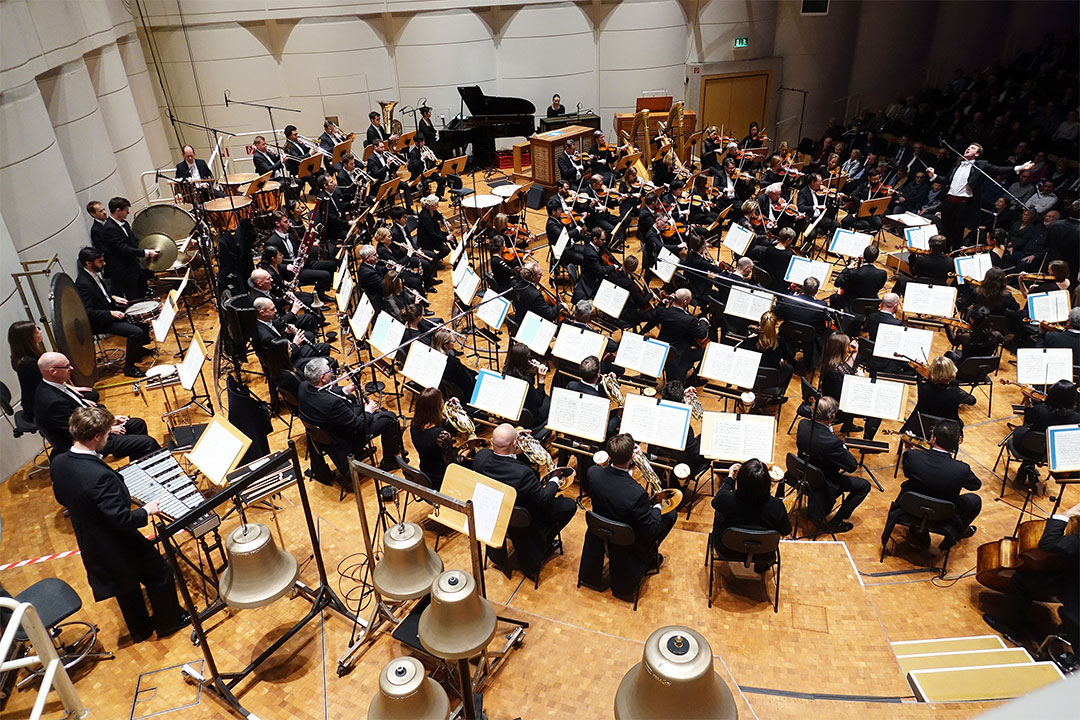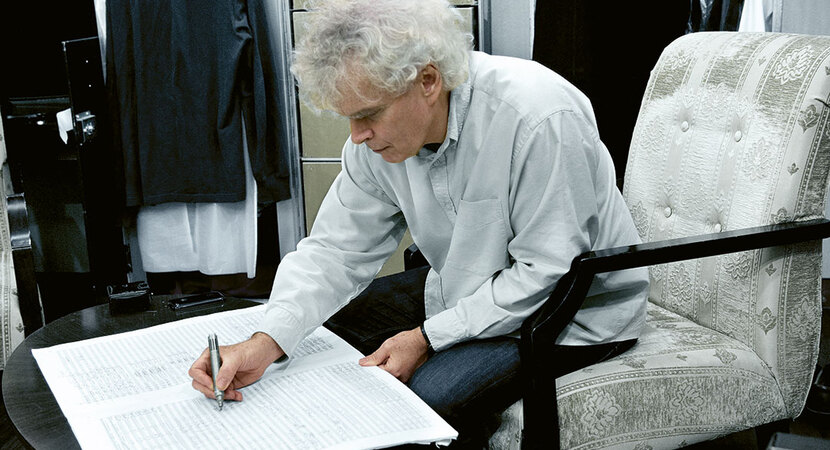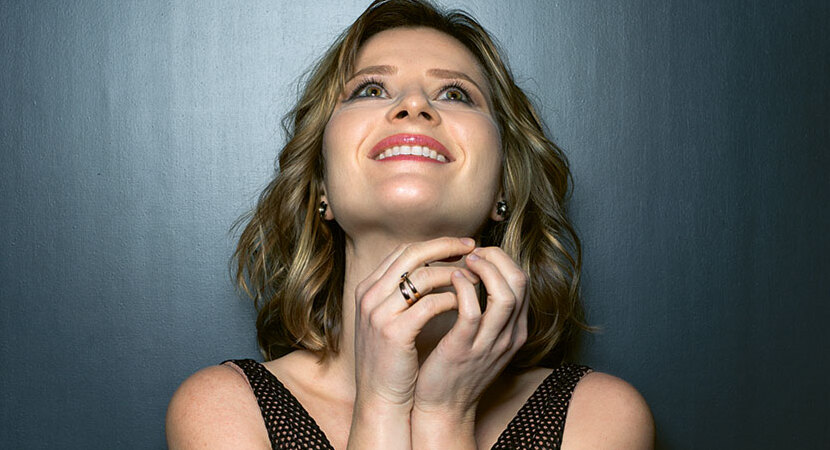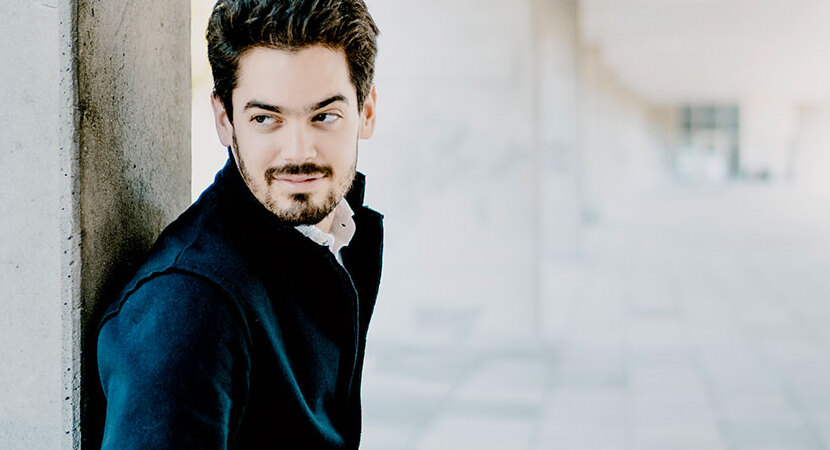- Wed 11 December 2024
- 7.30pm
Orchestra Concert
4. Philharmonisches Konzert: Am Abgrund
Ein Konzert voller emotionaler Dringlichkeit
- € 19 | 27 | 34 | 39 | 45 | 49
Dmitri Schostakowitsch stand persönlich am Abgrund, als er seine 4. Sinfonie schuf. In die Arbeit an dem Werk hinein fiel im Januar 1936 die Veröffentlichung des berüchtigten Artikels »Chaos statt Musik«, der aller Wahrscheinlichkeit nach direkt auf Josef Stalin zurückging und Schostakowitschs Musik gnadenlos verurteilte. Schostakowitsch musste von da an um sein Leben fürchten, wurde zu Verhören vorgeladen und rechnete täglich damit, von Polizei oder Geheimdienst abgeholt zu werden. Trotz seiner panischen Angst gelang es ihm, die Arbeit an der 4. Sinfonie fortzusetzen: »Und wenn Sie mir beide Hände abhacken, werde ich mit den Zähnen eine Feder halten und weiter Musik schreiben«, ist dazu von ihm überliefert. Unter diesen extremen Umständen entstand eine monumentale, hochdramatische Sinfonie, die ein Schlüsselwerk seines Schaffens ist.
- Performers
- Performers
- Dortmunder Philharmoniker
- Gabriel Feltz conductor
- Programme
- Programme
- Benjamin Britten Sinfonia da Requiem op. 20
- Dmitri Schostakowitsch Sinfonie Nr. 4 c-moll op. 43
- Further infos
- Further infos
- Introduction 7.00pm
Promoter: Theater Dortmund, Theaterkarree 1-3, 44137 Dortmund
About Your Visit
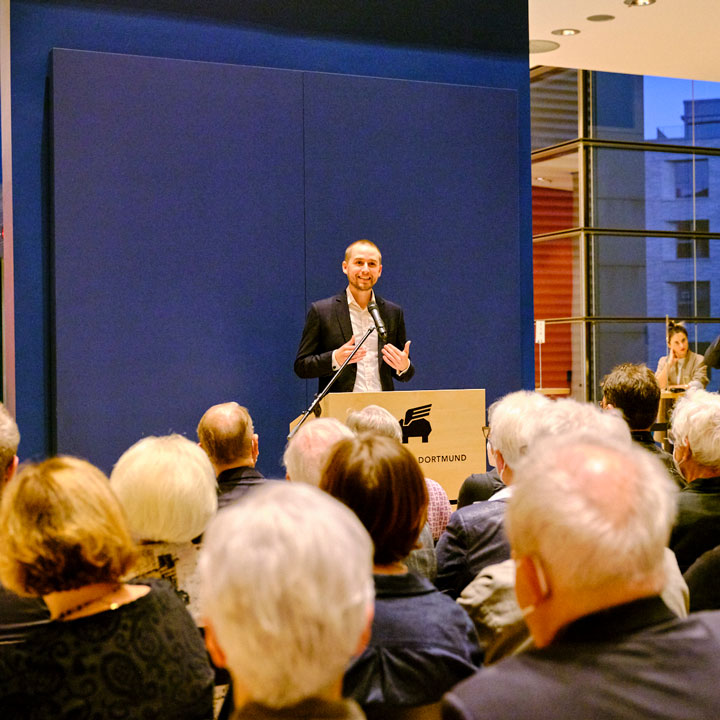
Einführung
Komponistenfoyer (2. Etage)
Musikexpertinnen und -experten stimmen Sie vor Konzertbeginn mit Informationen und Anekdoten rund um die Werke und Komponisten auf den Abend ein.
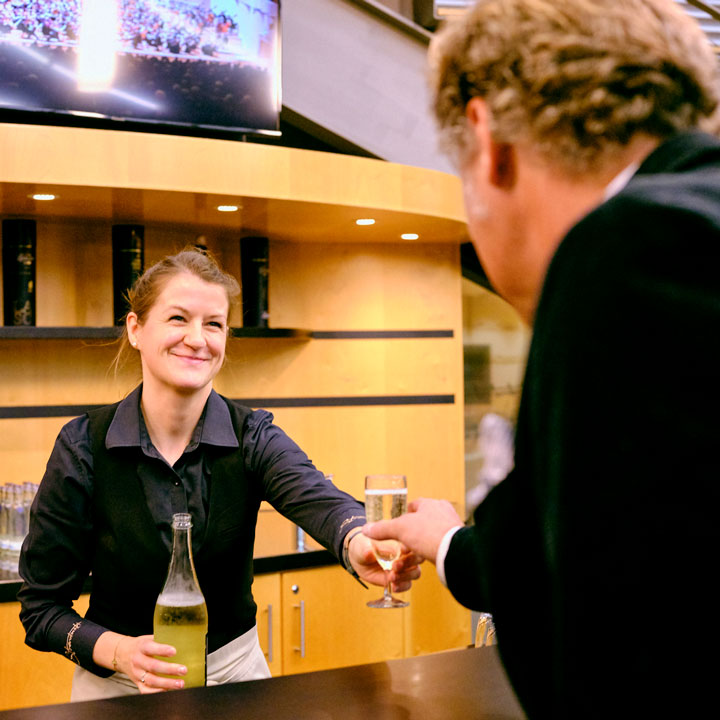
Gastronomie
Das Restaurant Stravinski im Konzerthaus bewirtet Sie vor oder nach dem Konzert sowie in den Konzertpausen. Reservieren Sie Ihre Pausengetränke schon vorab an einer der Theken.
Service
- Where to Find Us
Konzerthaus Dortmund is in Dortmund City Center. Konzerthaus Dortmund Brückstr. 21 44135 Dortmund
The main entrance lies within a pedestrian zone. It is not possible to drive up to it by car.
- Arrival and Parking
Konzerthaus Dortmund is easy to access with public transport. With concert tickets that include a note about the DSW21 Kombiticket, using all VRR public transport to travel to and from the event is free (you can find more information on the DSW21 Kombiticket here). In addition, there are four car parks in the immediate vicinity. More information about parking options and conditions can be found here.
- Accessibility
Konzerthaus Dortmund is certified as an accessible space: it has step-free entrances and the foyer, stalls and first and second-floor balconies can be reached via lifts. Disabled-accessible toilets are available. An induction loop is available for hearing aid users. If you have particular requirements for your visit, please give us a call on +49 (0) 231 - 22 696 200. Our free assistance service will endeavour to offer you a pleasant visit. You can find detailed information about the accessibility of our venue here.
- Cloakroom
We are happy to store your coats and rucksacks, and large musical instruments or umbrellas too, in the cloakroom. The cloakroom fee is €1.50.
- Admission
The entrance foyer and day/evening box office always open 90 minutes before the start of an event. (Different regulations may apply for third-party events.) You can take your seat 30 minutes before the start of an event at the earliest. If you arrive late, our foyer staff will, where possible, let you into the hall at a suitable point in the programme to prevent disruption to ongoing performances.
- Photos and Audio Recordings
Of course, you are permitted to take photos and make audio recordings for your own personal use during your visit to Konzerthaus Dortmund. However, please understand that during the performances, using devices to take photos or record audio is not permitted for copyright reasons.
Treffen Sie Ihre Auswahl, um sich auf die Warteliste zu setzen
Impressum
Herausgeber
Konzerthaus Dortmund GmbH
Brückstraße 21
44135 Dortmund
T 0231 – 22 696 0
info@konzerthaus-dortmund.de
Telefonservice
T 0231 – 22 696 200
Mo bis Fr 10.00 bis 18.30 Uhr
Sa 11.00 bis 15.00 Uhr
Registereintrag
Amtsgericht Dortmund, HRB 10345
Geschäftsführer: Dr. Raphael von Hoensbroech
Aufsichtsratsvorsitz: Barbara Brunsing
USt-IdNr.: DE153301398
Verantwortlich im Sinne des Presserechts: Dr. Raphael von Hoensbroech
Konzeption
Anne-Katrin Röhm (Leiterin Kommunikation, Marketing & Vertrieb)
Katharina Dröge, Judith Meyer, Stefan Laaß, Teresa Saxe
Kreation, Web-Design und Programmierung
giraffentoast design gmbh
www.giraffentoast.com
Urheberrechte
Alle Rechte vorbehalten. Sämtliche Inhalte, Texte, Bilder, Grafiken, Audio- und Videofiles auf den Websites der Konzerthaus Dortmund GmbH unterliegen dem Schutz des Urheberrechtes. Alle Rechte, auch die der Übersetzung, des Nachdrucks und der Vervielfältigung, liegen bei der Konzerthaus Dortmund GmbH. Einige Inhalte unterliegen außerdem dem Copyright Dritter. Der Inhalt dieser Seite darf nur mit schriftlicher Genehmigung reproduziert und verbreitet werden. Ausgenommen davon sind die Verwendung des unveränderten Inhalts zu persönlichen und nicht-kommerziellen Zwecken.
Haftung
Die Inhalte der Websites der Konzerthaus Dortmund GmbH wurden mit größtmöglicher Sorgfalt zusammengestellt. Trotzdem kann die Konzerthaus Dortmund GmbH für Fehlerfreiheit und Genauigkeit der enthaltenen Informationen nicht garantieren. Alle Angaben stellen die zum Zeitpunkt der Publikation jeweils neuesten Informationen dar. Eine Haftung für die Aktualität, Richtigkeit und Vollständigkeit der Daten ist ausgeschlossen.
Die Konzerthaus Dortmund GmbH haftet ebenfalls nicht für die Inhalte externer Links. Für den Inhalt der verlinkten Seiten sind ausschließlich deren Betreiber verantwortlich.
Die Konzerthaus Dortmund GmbH haftet nicht für technische Ausfälle sowie für Ausfälle, die außerhalb des Einflussbereiches der Konzerthaus Dortmund GmbH liegen.
